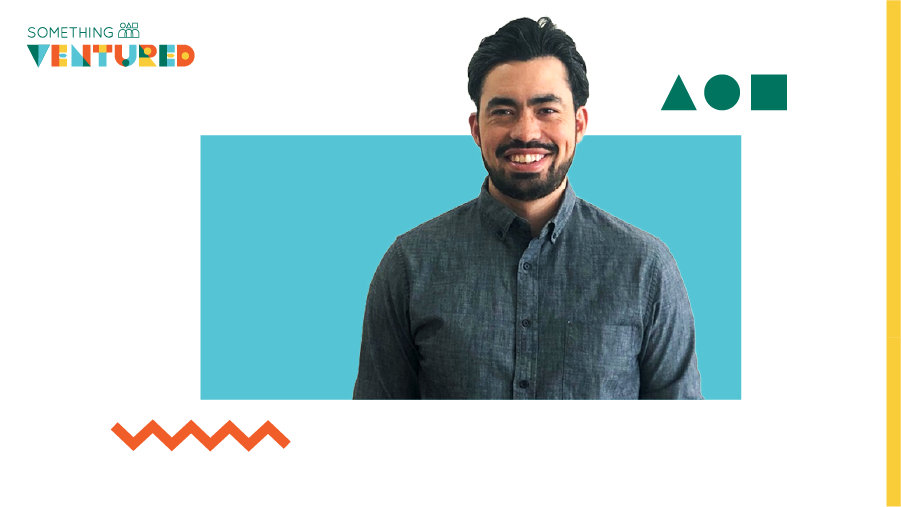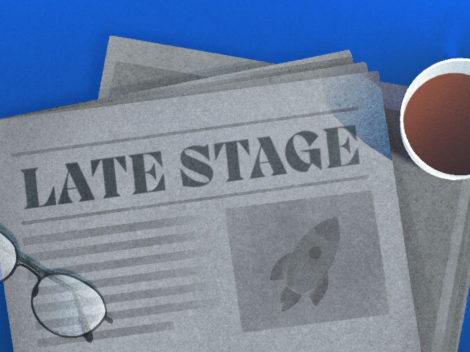Editor’s note: This profile is part of Something Ventured, an ongoing series by Crunchbase News examining diversity and access to capital in the venture-backed startup ecosystem. As part of this project, we’ll follow seven seed-stage entrepreneurs over the course of several months as they build their businesses. Read our profiles of Alex Alvarado and Daybreak Health here, here, here and here, and access the full project here.
Alex Alvarado doesn’t want another teenager to fall through the cracks the way his younger brother did before spiraling into a mental health crisis.
But Alvarado initially didn’t intend to get into health care advocacy or the mental health sector — he wanted to be a pilot. His path took a different turn, however, when he watched his family fall apart trying to access mental health care options for his younger brother.
So in 2019, along with fellow Stanford University student Siddarth Cidambi and work colleague Luke Mercado, he co-founded Daybreak Health to focus on providing online counseling services, especially for teens.
After initially funding their startup with the help of friends and family investors, along with an organization that focuses on teen mental health, Alvarado and his co-founders had a breakthrough: They were accepted into Y Combinator, the prestigious Silicon Valley startup accelerator program.
“It is a dream for any startup and founder,” Alvarado said. “We were unsure about Daybreak in the early days, we had a couple of customers, but didn’t have a product. We knew the problem existed, but wondered if the solution would resonate. Being accepted into Y Combinator showed us that people were willing to take a bet on us, and it opened a lot of doors.”
One of those doors was its first outside venture investment: a $1.8 million seed round in February led by Maven Ventures.
Daybreak is now growing 20 percent to 30 percent each month in users and revenue, works with 30 school districts and 10 pediatric groups, and is poised to add more practices in the coming week. While he’s glad to be growing his business, Alvarado acknowledges it’s a “double-edged sword” because it also shows the depth of the need for competent and compassionate mental health care for teens.
What follows is Alvarado’s story, in his own words, as told to Crunchbase News reporter Christine Hall:
I grew up in Seattle, the oldest of five children, to parents who were both educators. In fact, the way they have been role models to other children has had an impact on how we developed Daybreak.
My parents were incredible. They homeschooled all of us through middle school. That was an interesting experience transitioning into high school, but showed how dedicated they were to the family. We weren’t the most well-to-do, and that was part of the reason they homeschooled us, but it made up with the values taught us.
I am half Mexican, so culture has a familial bond. We were also very religious. I am no longer as religious, but growing up, you were either homeschooled to be able to teach religion or you sent your children to private school. They didn’t want to send me to public school. I was very religious going into college, and the turning point came when I went down to Stanford and met people who had different world views. It expanded my horizon and world of what I had believed.
I had originally wanted to be a pilot. I had this flight simulator game and would play it all the time. I remember evaluating going to Stanford because they had a flight school. However, in order to be a pilot, you had to pay a lot of money for the flight training. So one day, when I exit Daybreak, maybe I can pursue it again.
At Stanford, I was drawn into public policy and ended up double-majoring in that and economics. That led to getting into health care policy, and I spent a few months in Washington, D.C., working in the U.S. Department of the Treasury. I realized the politics weren’t for me, but did enjoy the public service.
I always thought I wanted to be an entrepreneur. The idea for Daybreak came when my brother had a tough incident after experiencing 10 years of depression. He ended up in a crisis, and my first reaction was that I needed to be there with my brother and to unpack what we had all missed as a family. I tried to be a support system for my brother, and over the next six to 12 months, I learned that what my family dealt with is the same other families were dealing with. I wanted to try and make an impact in that space.
My two co-founders, Luke and Sid, and I met at different points of my life. Luke and I worked together at Jiff, an enterprise health benefits platform. I met Sid my first day of my freshman year in the dorm at Stanford. Where else can you bring together an Indian, who was born in Dubai, and a Catholic kid from the Pacific Northwest? But we hit it off immediately. We both ended up working at the same health care consultancy, and stayed together the whole time.
What we do at Daybreak is mental health counseling for teenagers. There is a massive gap in thinking, understanding and supporting teens experiencing mental health issues. The problem can come from different areas — family, the health care system, and school, which is how I believe my brother fell through the cracks. It is typically the parents and family unit. I don’t blame parents because there is a generational divide. Mental health is not really talked about, and for some families, can be viewed as a weakness. It is an incoming perception, and some still have this thinking.
There has to be an awareness and understanding that when a teen has this issue, it is not that they are weak or there was something wrong in the way they were raised. It is a medically diagnosable issue.
The perception is changing a lot with the global pandemic. Parents are spending more time with their children at home and now understanding what has been happening at school. Now they see that at home.
One of the things we are tackling is classes for parents. When you look at the symptoms, it can be as simple as stomachaches or tenseness in their jaw. Even if you are a parent who wants to do something, most are not equipped to know if these are symptoms of anxiety or know what to do.
Pediatricians are also becoming more aware of mental care and prioritizing it during exams. My goal is to stop calling it a “physical” and start calling it a “check-in,” because it is both.
Read Part 2: School’s Out, But Better Mental Health Services For Teens Remains Top Of Mind
Photo illustration by Dom Guzman

Stay up to date with recent funding rounds, acquisitions, and more with the Crunchbase Daily.








![Illustration of 50+ woman on smartphone. [Dom Guzman]](https://news.crunchbase.com/wp-content/uploads/2021/01/Femtech_-300x168.jpg)
67.1K Followers